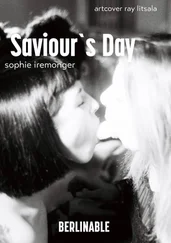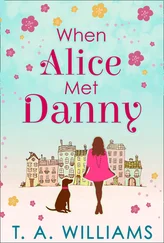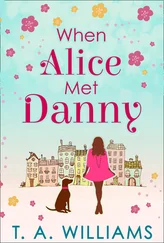HELEN YEADON
WITH GILL PAUL
When Sophie MetDarcy Day
To Michael
Contents
Cover
Title Page HELEN YEADON WITH GILL PAUL When Sophie MetDarcy Day
Foreword
Chapter 1 - A New Life in Devon
Chapter 2 - Moving to Greatwood Farm
Chapter 3 - Flat Broke
Chapter 4 - Lucy and Freddy
Chapter 5 - Sophie and Darcy Day
Chapter 6 - Moving to Wiltshire
Chapter 7 - Edward Joins the Team
Chapter 8 - Bobby and Bob
Chapter 9 - Henry and Potentate
Chapter 10 - Mark and Toyboy
Chapter 11 - Zoe and Sunny
Chapter 12 - Different Ways of Communicating
Chapter 13 - The Baptism of Fire
Chapter 14 - A Fear of Men
Chapter 15 - Ben and Leguard Express
Chapter 16 - Mary and Tim
Chapter 17 - The Importance of Food
Chapter 18 - School Phobia
Chapter 19 - Dealing with Bullies
Chapter 20 - Paul and Just Jim
Chapter 21 - Further along the Autism Spectrum …
Chapter 22 - Different Kinds of Challenges
Chapter 23 - Greatwood Expands
Chapter 24 - Amy and Monty
Find out more about Greatwood
Acknowledgements
Copyright
About the Publisher Конец ознакомительного фрагмента. Текст предоставлен ООО «ЛитРес». Прочитайте эту книгу целиком, купив полную легальную версию на ЛитРес. Безопасно оплатить книгу можно банковской картой Visa, MasterCard, Maestro, со счета мобильного телефона, с платежного терминала, в салоне МТС или Связной, через PayPal, WebMoney, Яндекс.Деньги, QIWI Кошелек, бонусными картами или другим удобным Вам способом.
Foreword
Sophie was a puzzle. At first glance she was a slightly dumpy girl in her early teens who wore baggy, unflattering clothes and wouldn’t make eye contact with anyone. Her posture was slumped, as if she were trying to make herself as small as possible to avoid being noticed. That was unremarkable in a girl of her age, but the most unusual thing about Sophie was that she hadn’t spoken for over two years. Not to anyone.
And no one could work out why. Her school work was suffering, she had no social life and her parents were at a loss to know what to do.
One day they brought her to Greatwood, the Devon farm where my husband Michael and I looked after retired racehorses.
‘I hear you let local children help out with the animals,’ her mother said. ‘I don’t suppose we could leave Sophie with you for a couple of hours to see how she gets on? She’s always liked horses.’
‘Of course,’ I said. There was so much to be done that we were always grateful for another pair of hands.
I was just on my way to change the dressings on a horse called Darcy Day, who’d arrived a few days earlier in a very poorly condition. She had painfully swollen, infected legs, diarrhoea, and she was drastically underweight, with her bones sticking out through a dull, matted coat. We spoke kindly to her, trying to get some kind of response, but her eyes were glazed, her head hanging. She was depressed and withdrawn. She’d lost interest in everything and everybody. We put her in a stable and she slunk to the back of it, not moving when I carefully arranged a rug over her, and not even attempting to sniff the fresh hay I placed nearby.
As we walked to the stable that morning, I explained to Sophie what was wrong with Darcy, and said that she needed very special care and attention while we tried to get her on the road to recovery. Her feed and medication needed constant monitoring and the bandages on her legs had to be changed regularly. Michael joined us in case I needed an extra pair of hands to hold her while I positioned the dressings. The three of us opened the stable door and walked in, and something quite remarkable happened. Darcy pricked up her ears, looked straight at Sophie, then turned and walked over towards her. As she got close, she lowered her head.
Michael and I looked at each other in astonishment. ‘That’s amazing,’ I exclaimed. ‘Look, Sophie – she’s come to say hello to you. She wants you to stroke her nose.’
Sophie stretched out a tentative hand to touch her.
‘It’s extraordinary,’ I remarked. ‘I bring her feed to her but she completely ignores me. You’re the first person she’s shown any interest in.’
A smile was twitching at the corners of Sophie’s mouth. She gently stroked Darcy’s nose.
‘She obviously likes you,’ Michael added, and Sophie gave a proper smile, just a quick one.
It was the beginning of a relationship that would change both Sophie’s and Darcy’s lives, although we weren’t to know it at the time.
We stood and watched for a moment, then we started laying out the bandages, soft wrap and ointments necessary to dress Darcy’s legs. With twenty horses, two goats, four dogs, umpteen chickens and a few unruly geese to look after, there was never any time to spare.
Chapter 1
A New Life in Devon
Most people plan their lives. They choose the area in which they live because it’s close to where they work, or to good schools for their kids, or because they’ll be near family and friends. They plan their careers, buy houses they can afford based on their salaries, and even book their annual holidays in advance. My husband Michael and I have never operated that way. More or less everything that has happened to us over the last twenty years has been the result of coincidence, or a reaction to circumstances. It has often felt as if we were being propelled in a certain direction and we just went with the flow. Perhaps the most significant feature of the Great-wood story is that it simply evolved.
For instance, we moved to Devon in 1993 largely because of an idyllic fishing trip. It was a hot day in June, the lazy river glinted in the sunlight and a wildflower meadow stretched into the distance. The only sound was the buzzing of insects and my father sucking on his pipe. I don’t fish myself but the beauty of the landscape was so intoxicating that I turned to Michael and said, ‘We should move down here.’
At the time we lived in the Cotswolds, where we ran a small hotel. While it was rewarding at first, we’d been getting fed up with the relentless drudgery, and an inheritance from Michael’s Aunt Gladys meant we could afford to change direction. Michael loved to write and had been working for a couple of years on a children’s story, which I had illustrated. If we sold our hotel in the Cotswolds and bought a place in Devon, we’d have enough money in the bank to keep us going for a couple of years until we decided what we wanted to do with our lives. And if we found a big enough place, Michael’s elderly and increasingly frail mother could live in an annex, where we could keep an eye on her.
My reverie was interrupted by a yell, followed by a loud braying sound. Dad had lifted his fishing line out of the water and flicked it backwards in a long, languid cast. Michael shouted too late to warn him that some heifers had sidled up behind us and a cow complained loudly as it was hooked solidly in the rump. The heifers charged off across the field, dragging Dad’s reel behind them, and we all chased after them like the cast of a Laurel and Hardy movie, with Michael and me trying to grab the recalcitrant cow and hold it still long enough for Dad to extricate his hook.
It was a warning of things to come, a message about the trouble animals can bring into your life. Maybe we should have listened. But we didn’t.
After much searching, we found a house we both liked, near Dartmoor. What sold it to us was a stunning five-foot-wide solid oak door with iron studding, which led into a small porch with oak seating and a tiny room above with a diamond-paned window. The door and the porch were probably worth more than the rest of the house and the garden put together. The property was surrounded by fields on all sides, and there were several outbuildings we could renovate. That was the good news. The downside was the carnage left by previous attempts at modernisation: concrete floors, orange and green painted beams, and the obligatory 1970s avocado bathroom suite. Undeterred, we moved in, along with our four Jack Russells, and began to do it up to our own taste, sourcing original Devon slate for the floors and ripping out the ancient plumbing.
Читать дальше
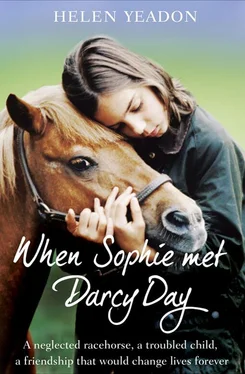
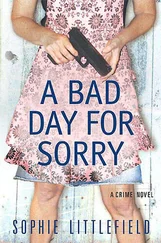
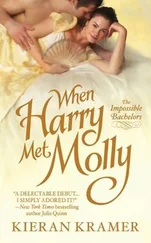
![Джулиан Ассанж - Google не то, чем кажется [отрывок из книги «When Google Met WikiLeaks»]](/books/405461/dzhulian-assanzh-google-ne-to-chem-kazhetsya-otryvok-thumb.webp)


